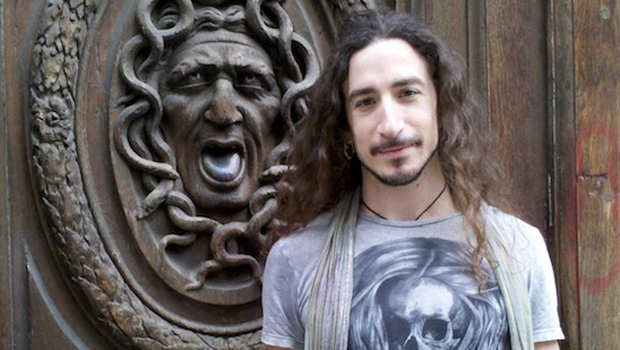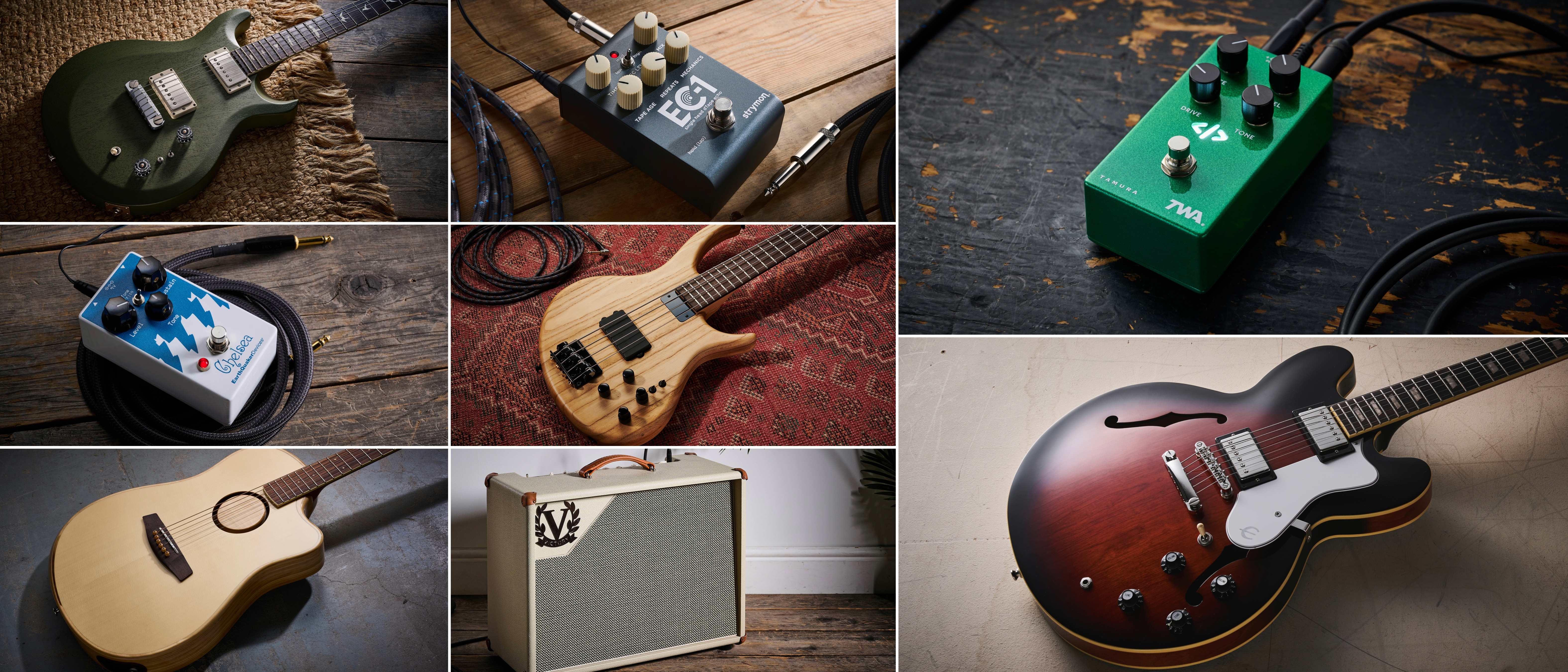Seeking Six-String Inspiration? Try Changing Up All Your Routines

In my last post, I purposely tried to push the buttons of technique junkies (such as myself) by saying, "No one remembers technicians, only great musicians!"
In this week’s post, I’d like to back this up and focus on how to properly respect your potentially magnificent role as "instrument for the muse."
The main purpose of a great musician is to channel the muse so that both the musician and his/her audience may commune with beauty and ideas beyond what humanity has yet been able to imagine or describe. Classically, the goddesses who inspire literature and the arts are the muses. The muse is the force behind genius.
A muse may be harnessed and communed with yet is forever beyond being owned. The purpose of all time-tested formulae is to unleash genius onto the blank pages that defiantly stare back at our insecurity to deliver the goods. A musician is one who allows the muse to enter him/her and completely take the reins. They are at once master and disciple. They become as much the tool as the strings they exhaustively train themselves to manipulate.
Musicians seek out the voltage of that which is "mind-blowing" and will constantly shake up their routines to let it come through. They describe the place this voltage flows from as "the pocket." Think about why playing in "the pocket" is such a revered skill in a performer. They faithfully abide in a space where they commune in perfect unspoken understanding with their bandmates as if guided by an unseen conductor. They aren’t afraid to leave a space for the music to breathe. This pocket is how a group plays together as a single entity which is greater than the sum of its parts.
Yet our own efforts can block us from doing this. We talk when we should listen. We present our chops like credentials, as if our ego could possibly match the power of the moment. From the years of dedicated study and practice, we come with our hands full of habitual patterns and expect something inspired to happen. Our ears are full of what we’ve conditioned them to be comfortable with (Yes, I’m especially knocking on that pentatonic box you complain of being trapped in), and we still hope to produce a phrase no one’s heard before.
It's true that having mastered a wide array of techniques is essential to catching a great idea when it flashes into existence, but to continue to think it solely comes from skillful hands or our trained ear is to remain firmly in the way of brilliance. Like trying to pick up something you are sitting on. This is the frustration we encounter when it's time to break the rules we worked our asses off to learn.
All the latest guitar news, interviews, lessons, reviews, deals and more, direct to your inbox!
To practice the art of living in the pocket, start shaking up your routines, and I mean all of them! Brush your teeth with your opposite hand. When you bathe, proceed in the opposite order you habitually wash your parts. Eat with your fork in the knife hand and knife in the fork hand. This will silence the inner-dialogue that chatters while inspiration waits to speak.
You will feel vulnerable and off-balance, and this usurps the routine of playing "licks." Like getting the car up on two wheels, good rock 'n' roll is supposed to be dangerous!
Michael Hewett is a composer, producer, guitarist and recording artist who has released four full-length albums and numerous singles. He played lead guitar in the hit Broadway musical “Wicked” (2004 to 2009), is a video instructor and blogger at Guitar World magazine and tours internationally with his own project. Preview his catalog of music on iTunes.
